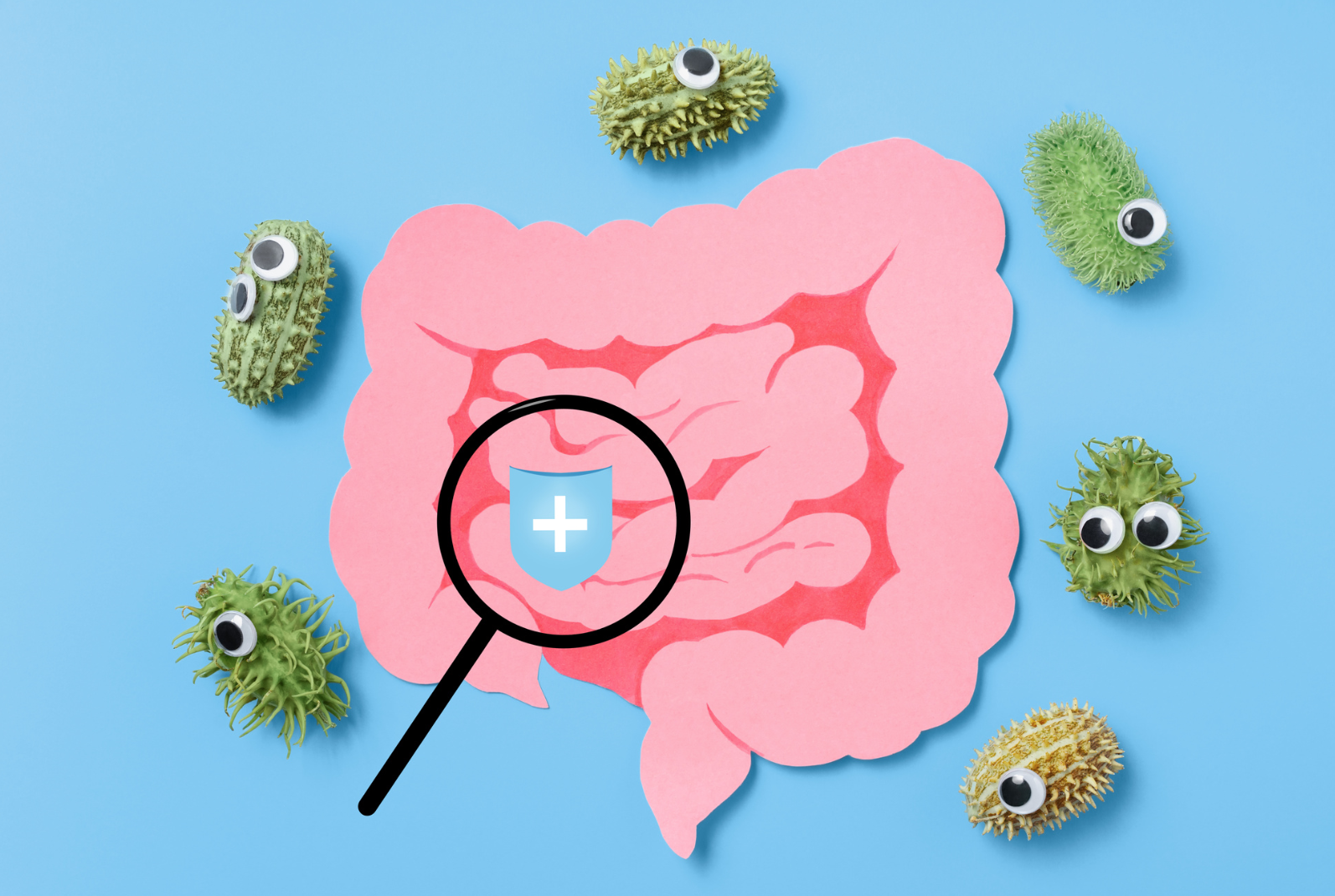Health & the Microbiome: Good vs. Bad Bacteria

Digestive function and the maintenance of a healthy microbiome serve as the cornerstone for comprehensive health and well-being. Achieving equilibrium between beneficial “good” and harmful “bad” bacteria is paramount for the optimal functioning of the microbiome. Referred to as the body’s “second brain,” the microbiome is a complex community comprising trillions of microorganisms situated in the gastrointestinal tract, skin, and other mucosal surfaces. This intricate ecosystem plays a pivotal and multifaceted role in numerous physiological functions, encompassing processes such as digestion, nutrient absorption, and immune system modulation.
Functions of the Microbiome:
Digestive Power: The microbiome serves as the maestro orchestrating the digestion of complex carbohydrates. Good bacteria, such as Lactobacillus and Bifidobacterium, break down these compounds into simpler forms, aiding in nutrient absorption and energy production.
Immune System Support: Our immune system’s helpers, the good bacteria, help educate and train immune cells, ensuring they can differentiate between friend and foe. This collaboration fortifies our defenses, providing resilience against infections and diseases.
Synthesis of Essential Nutrients: Certain strains of bacteria within the microbiome contribute to the synthesis of vitamins such as B and K. These vitamins play crucial roles in various bodily functions, including blood clotting and energy metabolism. Healthy microbes also produce short
Production of Short Chain Fatty Acids (SCFAs): SCFAs are organic acids, produced by the fermentation of dietary fibers by beneficial bacteria in the colon. SCFAs, including butyrate, propionate, and acetate, offer a myriad of benefits:
- Energy Source: SCFAs serve as an energy source for the cells lining the colon, promoting their health and function.
- Anti-Inflammatory Properties: Butyrate, in particular, exhibits potent anti-inflammatory effects, contributing to a balanced and resilient immune response.
- Regulation of Appetite: SCFAs play a role in appetite regulation, influencing feelings of satiety and potentially aiding in weight management.
- Gut Barrier Maintenance: Butyrate is renowned for its role in promoting the integrity of the gut barrier, acting as a shield against harmful substances.
The “good” bacteria tend to produce more SCFAs vs the “bad” bacteria.
Mood and Hormone Regulation: The microbiome plays a pivotal role in mood regulation and hormone balance. The communication between the gut and the brain, often referred to as the gut-brain axis, influences neurotransmitter production, impacting mood and stress response. Moreover, the microbiome is involved in hormonal regulation, influencing the production and metabolism of hormones throughout the body.
Maintaining Gut Barrier Integrity: The microbiome actively participates in maintaining the integrity of the gut barrier. A healthy gut lining prevents the entry of harmful substances into the bloodstream, reducing the risk of inflammation and autoimmune responses.
Good vs. Bad:
Good Bacteria: Guardians of Wellness
Imagine the good bacteria as the vigilant guardians of our internal kingdom. These benevolent microbes, predominantly composed of species like Lactobacillus and Bifidobacterium, work tirelessly to maintain a harmonious environment. They aid in the digestion of complex carbohydrates, synthesize essential vitamins, and bolster our immune defenses against invaders.
The key to promoting good bacteria lies in embracing a diverse and plant-rich diet. Fermented foods like yogurt, kefir, and sauerkraut are treasure troves of probiotics, replenishing our gut with these beneficial organisms. By fostering an environment conducive to their growth, we lay the foundation for a resilient and thriving microbiome.
Bad Bacteria: The Discordant Note
Now, let’s explore the discordant notes in this symphony – the so-called “bad” bacteria. While some level of these microbes is natural and even necessary, an imbalance can disrupt the entire composition, leading to various health issues. Species like Escherichia coli (E. coli) and Clostridium difficile, when in excess, can contribute to inflammation, digestive disorders, and even compromise our immune defenses. Overgrowth of certain “bad” bacteria can lead increased inflammation in the digestive tract and can trigger certain autoimmune conditions like Rheumatoid Arthritis. Overabundance these “bad” microbes activate the immune system leading digestive symptoms such as gas, bloating, heartburn, constipation, and/or diarrhea. Further, this immune system activation can lead to systemic symptoms of inflammation.
The culprits behind the proliferation of bad bacteria are often our modern lifestyles – high-stress levels, processed foods, and overuse of antibiotics. Recognizing and addressing these factors is crucial to restoring harmony within the microbiome.
How to Promote a Healthy Microbiome:
Nourish with Whole Foods: Opt for a diverse, plant-based diet rich in fiber, prebiotics, and antioxidants. These nutrients act to support the growth of healthy microbes and promotes a diverse and rich ecology of microbes.
Mindful Hydration: Adequate water intake is akin to the gentle rain that nurtures the garden of our microbiome. Stay hydrated to support optimal digestion and nutrient absorption.
Cultivate Stress Resilience: Chronic stress disrupts the delicate balance within. Incorporate stress-reducing practices like meditation, yoga, or deep breathing to restore equilibrium.
Limit Antibiotic Use: While antibiotics play a crucial role in combating infections, their indiscriminate use can disrupt the microbiome. Work closely with healthcare providers to explore alternative approaches when possible.
Diversify Fiber Intake: The microbiome thrives on a diverse array of fibers. Incorporate a wide variety of fruits, vegetables, whole grains, and legumes into your diet. This fiber feast provides nourishment for the beneficial bacteria, promoting a flourishing and diverse microbiome.
Health and the gut microbiome are inherently in entwined. Balancing the the good vs. bad bacteria and promoting a diverse microbiome ecosystem is essential to good health.
Have more questions or interested in learning how optimizing your gut health can improve your wellness? Schedule an appointment with one of our providers today!

